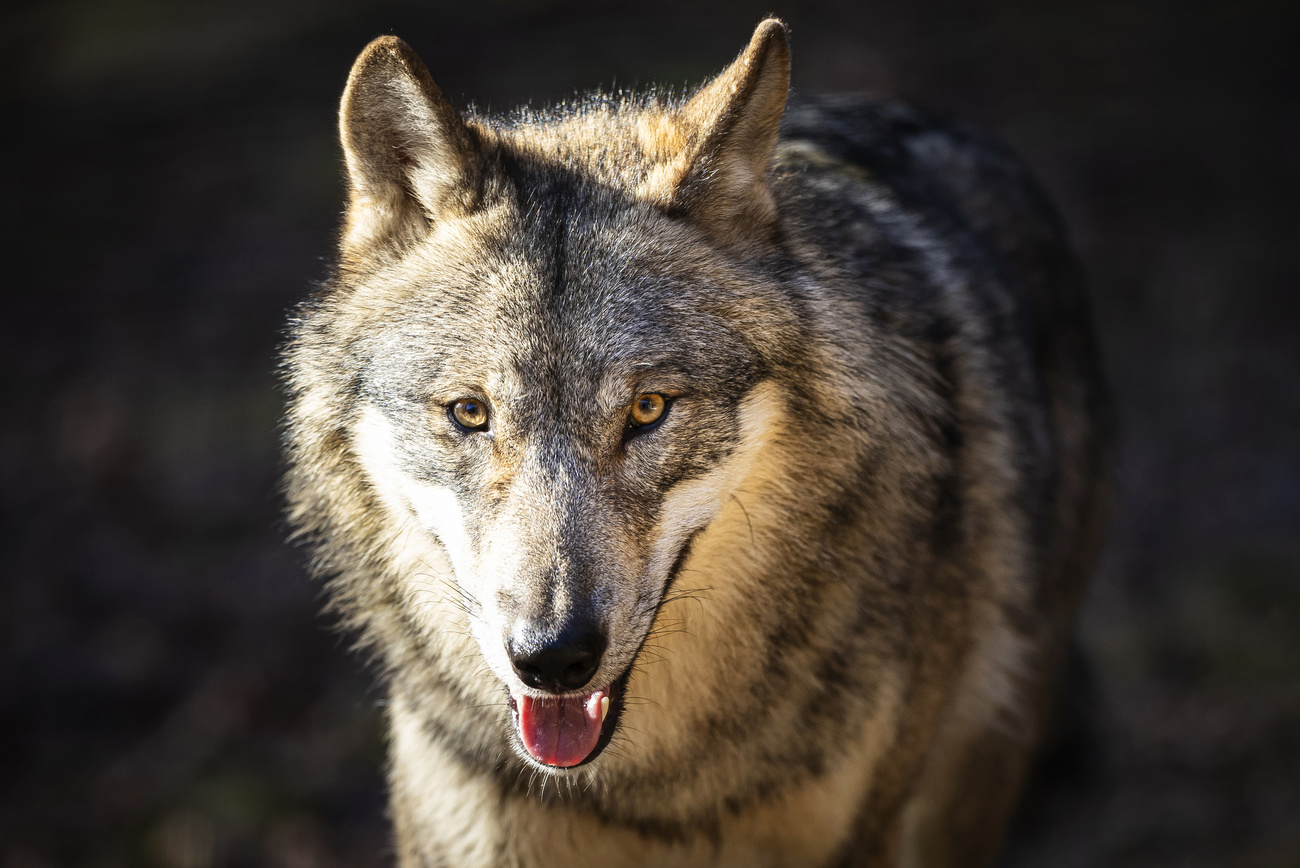
Today in Switzerland
Dear Swiss Abroad,
If you were asked to list the most divisive and polarising topics in Switzerland, which would you choose?
I’m willing to bet that many of you would put two of the topics we’ll be discussing in today’s briefing at the top of the list: relations with the EU and relations with wolves (not necessarily in that order).
We’ll also look at the difficulties Swiss municipalities have in finding members for their executives, and the government’s message on a popular initiative that would introduce a stricter interpretation of Swiss neutrality into the constitution.
Happy reading!
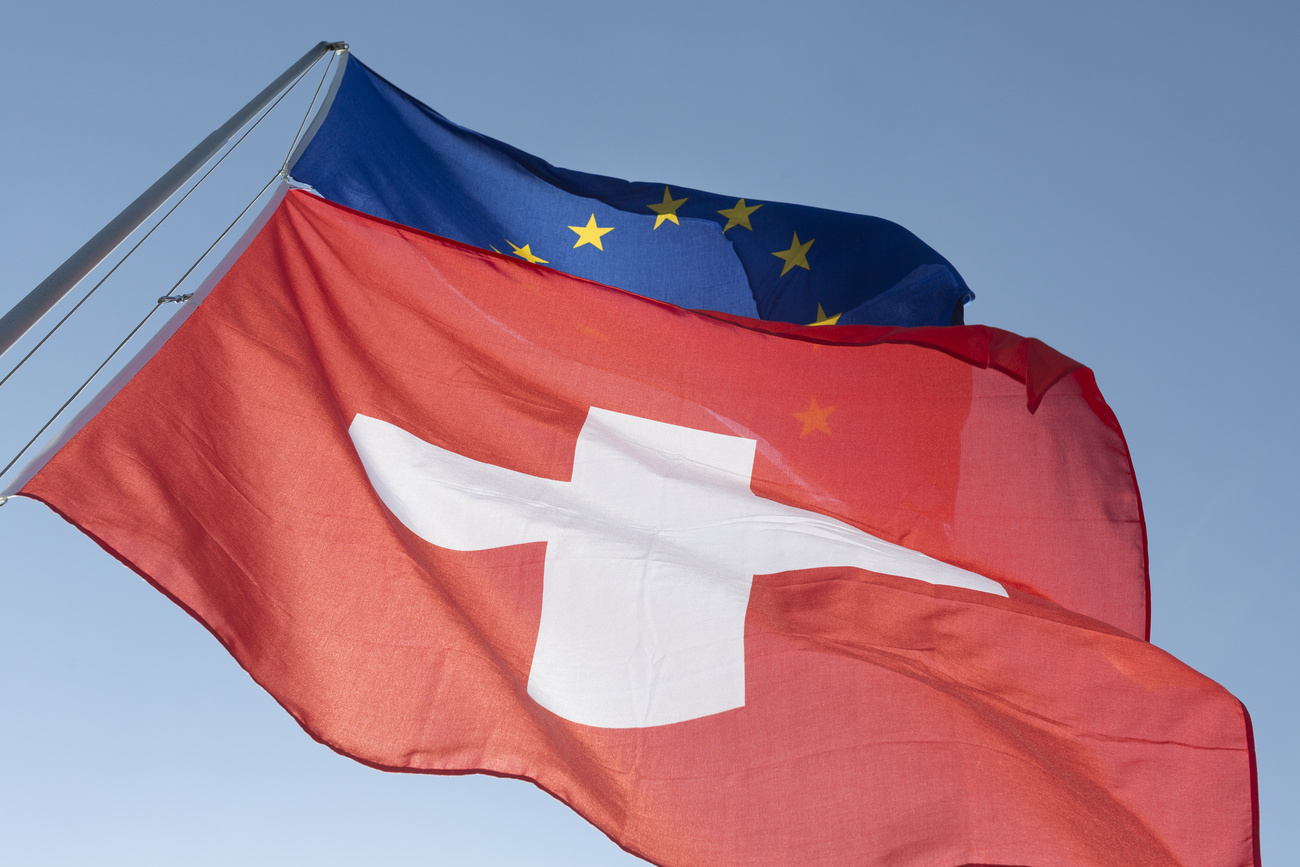
Negotiations on institutional relations between Switzerland and the EU “are in the home straight”, said Foreign Minister Ignazio Cassis before his meeting near Bern today with European Commission Vice-President Maros Sefcovic “to take stock of the situation”.
According to the foreign ministry, the talks on the negotiation package “are continuing at a brisk pace”. The meeting was supposed to take place as early as this summer, but it was cancelled at the last moment, apparently because the negotiating positions were too far apart.
The negotiations should be concluded by the end of the year. In principle, existing agreements are to be updated and expanded. In particular, these are agreements in the areas of land transport, electricity, health, state aid and the free movement of people. Sefcovic recently stated that the negotiations were among the “most intense of his career”.
As soon as the negotiations with the EU have been initialled, the government will forward the agreement to parliament. If parliament approves it, the dossier will be submitted to the people. A vote is expected in autumn 2026 at the earliest.
- More details on RTSExternal link
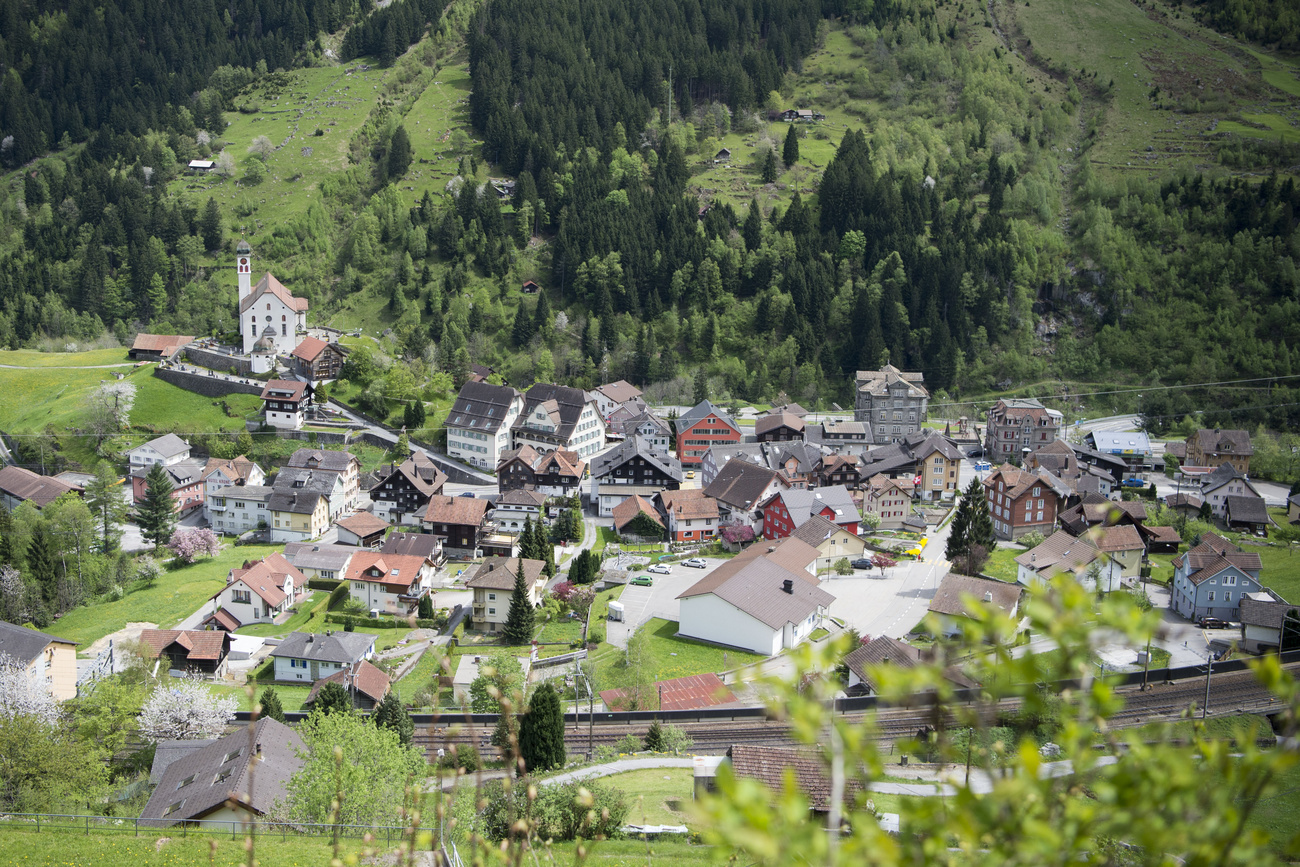
Mergers mean there are far fewer municipalities in Switzerland than in the past. However, many still have difficulty finding people willing to take on public office. Occasionally, some people find themselves sitting on the executive unwillingly and incur a fine if they refuse.
Members of Swiss city halls are getting older and older, less than a quarter are female and less than a fifth are under 45 years old, Reto Steiner, author of a monitoring study from the Zurich University of Applied Sciences, explained to Swiss public radio, SRF.
As a result of mergers, the number of Swiss municipalities has fallen to 2,131 – 15 years ago there were around 500 more – but half are still struggling to find people willing to take on demanding public positions. Swiss public radio, RSI, gives the example of Wassen, where Andreas Baumann-Zurfluh was elected to the executive on Sunday. Baumann-Zurfluh did not hide his discontent, telling various media that he did not run for office and did not have time to take office.
A farmer, father of six, deputy fire brigade commander and cashier of the Uri farmers’ federation, Baumann-Zurfluh believes he already has a sufficiently full life. He attributes his election to the opinions he is not afraid to share when he has a drink with friends at the bar after work.
He now has ten days to decide whether to accept the post. A yes is, however, a de facto obligation for anyone under the age of 65 who has never taken on a job in the past, under penalty of a fine of CHF5,000 ($5,700) if they refuse.
- Articles on SRFExternal link and RSIExternal link
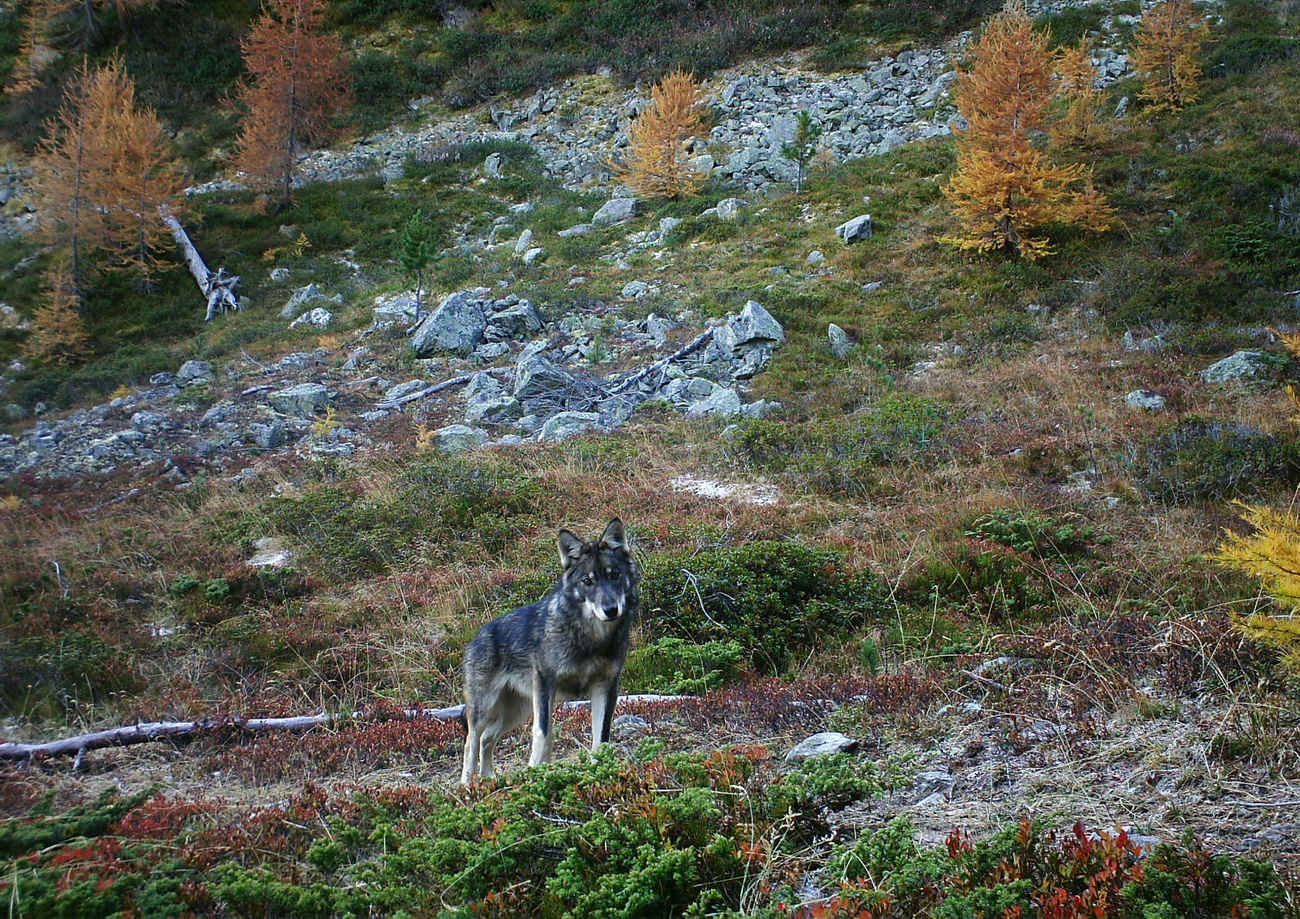
The coexistence of wolves and humans is an issue that continues to inflame tempers in Switzerland. The latest controversy concerns the culling in Valais of animals that were not part of the packs for which regulation was envisaged. In Graubünden, on the other hand, three lynx were killed.
According to a genetic analysis revealed by Blick, 11 of the 27 wolves killed last winter in Valais did not belong to the packs targeted by the preventive culls.
According to Nicolas Bourquin, head of the cantonal hunting, fishing and wildlife department, these “errors” are justified. “It’s part of the legal framework,” he explained to RTS yesterday. “In other words, at the time of the shooting it’s impossible to determine precisely which wolf is being shot. In any case, they were within the authorised perimeter.”
A predator that is much less talked about, however, has been a collateral victim of the difficult co-existence of humans and wolves in Graubünden. During a night hunting operation in the Surselva, a gamekeeper accidentally shot three lynx – two cubs and an adult male – mistaking them for wolf cubs. The action was authorised to control the Vorab pack. Upon discovering the mistake, the gamekeeper informed the authorities and reported himself to the public prosecutor.
- The article on RSIExternal link on the lynx and on RTSExternal link on the culls in canton Valais
- Wolf: culling or protection? Take part in the discussion on Dialogo
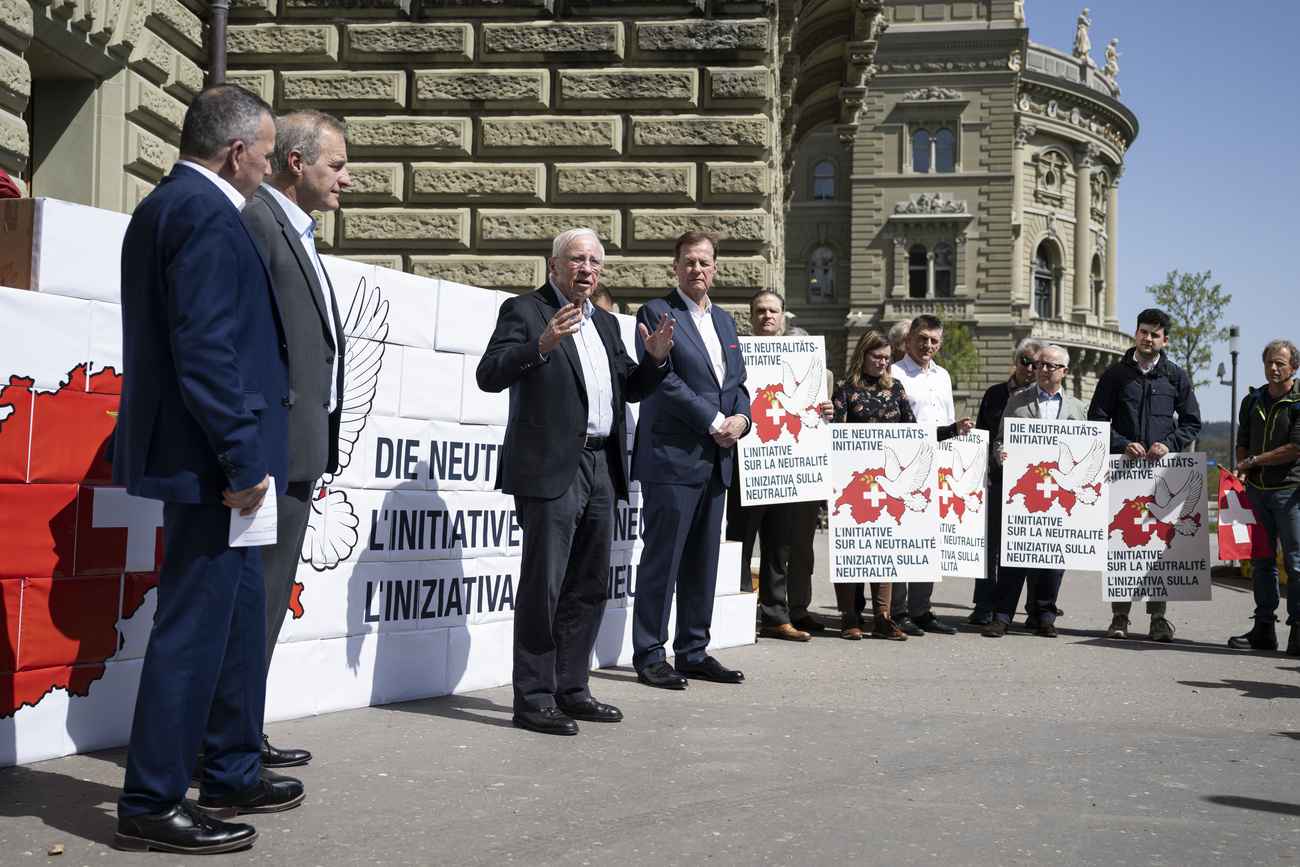
The government today encouraged parliament to reject the popular initiative “Safeguarding Swiss Neutrality” and not to draw up a counter-proposal in response to it.
The initiative demands that Switzerland not join any military or defence alliance, except in the case of a direct attack against the country. It also wants Bern to renounce sanctions against belligerent states, as it did with Russia after the invasion of Ukraine. Training with foreign partners would remain permitted and obligations to the UN would not be affected. Another aim of the text is to allow Switzerland to use its permanent neutrality for good offices to prevent and resolve conflicts.
The government is of the opinion that the “rigid concept of neutrality” that the initiative would enshrine in the constitution “is not in Switzerland’s interest” and would “limit the room for manoeuvre in foreign policy”. Sanctions that enjoy broad international support, the government adds, “are an important instrument for responding to violations of international law and contribute to maintaining a peaceful and just world order”.
More than 130,000 signatures in favour of the initiative were delivered to the Federal Chancellery in April. According to the initiating committee, of which former government minister Christoph Blocher (pictured, gesticulating) is also a member, the success of the collection of signatures was also due to the rapprochement with NATO promoted by Defence Minister Viola Amherd.
- The article on RSIExternal link
More
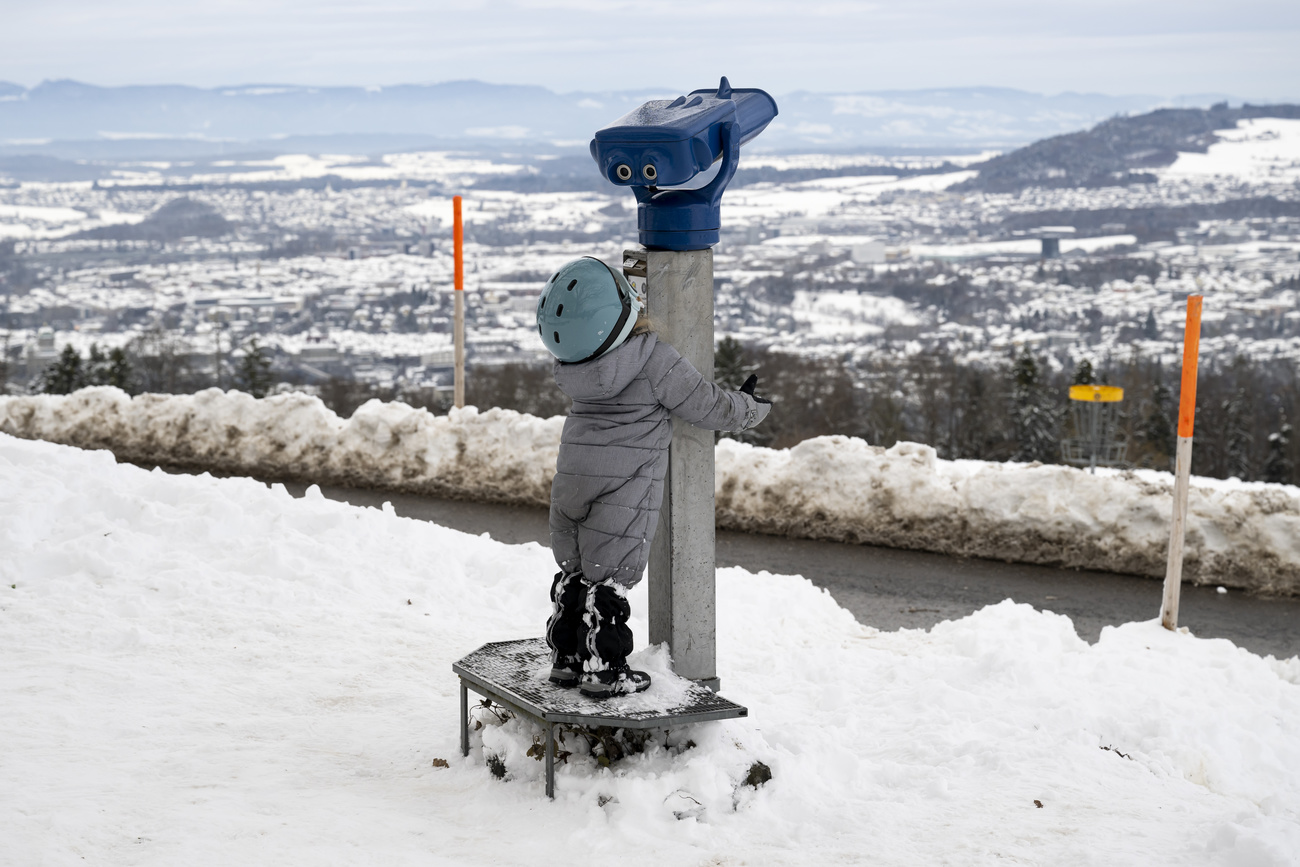
Photo of the day
Wall-E? Making friends on the Gurten in Bern.

In compliance with the JTI standards
More: SWI swissinfo.ch certified by the Journalism Trust Initiative








